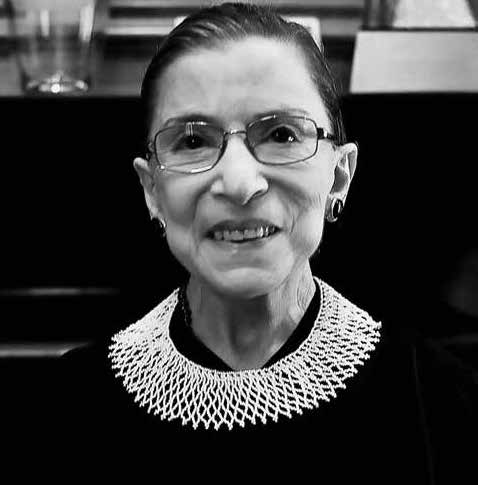
Feeling RBG’s Loss in the Days of Awe
Rosh Hashanah sermon delivered Sunday, September 26th at Sixth and I Historic Synagogue in DC
Shanah Tovah! I’m Steph, I use she/her pronouns, and I’m an abortion activist and a writer. I love nothing more than to be able to tie my pro-abortion values to my Jewish identity. So when I was asked to share a few words tonight on the overturning of Roe v. Wade, I was ready. I have plenty of strong, very strong, opinions. And, it turns out, I have some strong feelings, too. But when it came time to write, I found it almost impossible to tap into the emotional side of my work. I can write down my thoughts, my opinions, my beliefs. But I struggled to write down how I felt about all of that.
You see, part of being able to survive as a repro worker is to be able to compartmentalize. I take the violence, the regressive laws, the evil politicians, the lies, the chaos, and I put those things in a box. I allow myself to intellectualize my feelings, in part, because it’s not really about me. I don’t need an abortion. I’m not the person who will be the most impacted by Roe being overturned. I’ve spent so long learning to decenter myself in this movement that I haven’t really felt, deeply felt, how tired I am. And how sad. Angry, yes, I feel angry all the time.
But coupled with the fact that this is also the anniversary of the death of a personal hero of mine and so many Jews, Justice Ruth Bader Ginsburg— and the fact that this event catalyzed the final step of the fall of Roe—I don’t feel equipped to hold so much grief.
I can hide behind the calls to action that I know this community is already so familiar with. But the truth is, I feel really powerless in this moment. It’s painful to surrender myself to something so colossal as the abortion access movement. But in writing this, I’ve realized I don’t really have a choice.
In this season of the Jewish calendar, this is precisely what we are being asked to do. Not only must we stand before the enormity of what it means to be human, in front of the Book of Life, but we are asked to confront it, to wrestle with it. And sometimes even allow ourselves to be overwhelmed by it.
So on the one hand, I’m sorry that this isn’t a feel-good, rah-rah motivational sermon, which is what I had originally written. But I’m not sorry that this is an opportunity to feel, and feel so deeply, the enormity of what it means to be a complex human in a complex world. I’m so grateful for a Jewish community that reminds me I’m not alone in this, and together we can help each other feel this moment.



